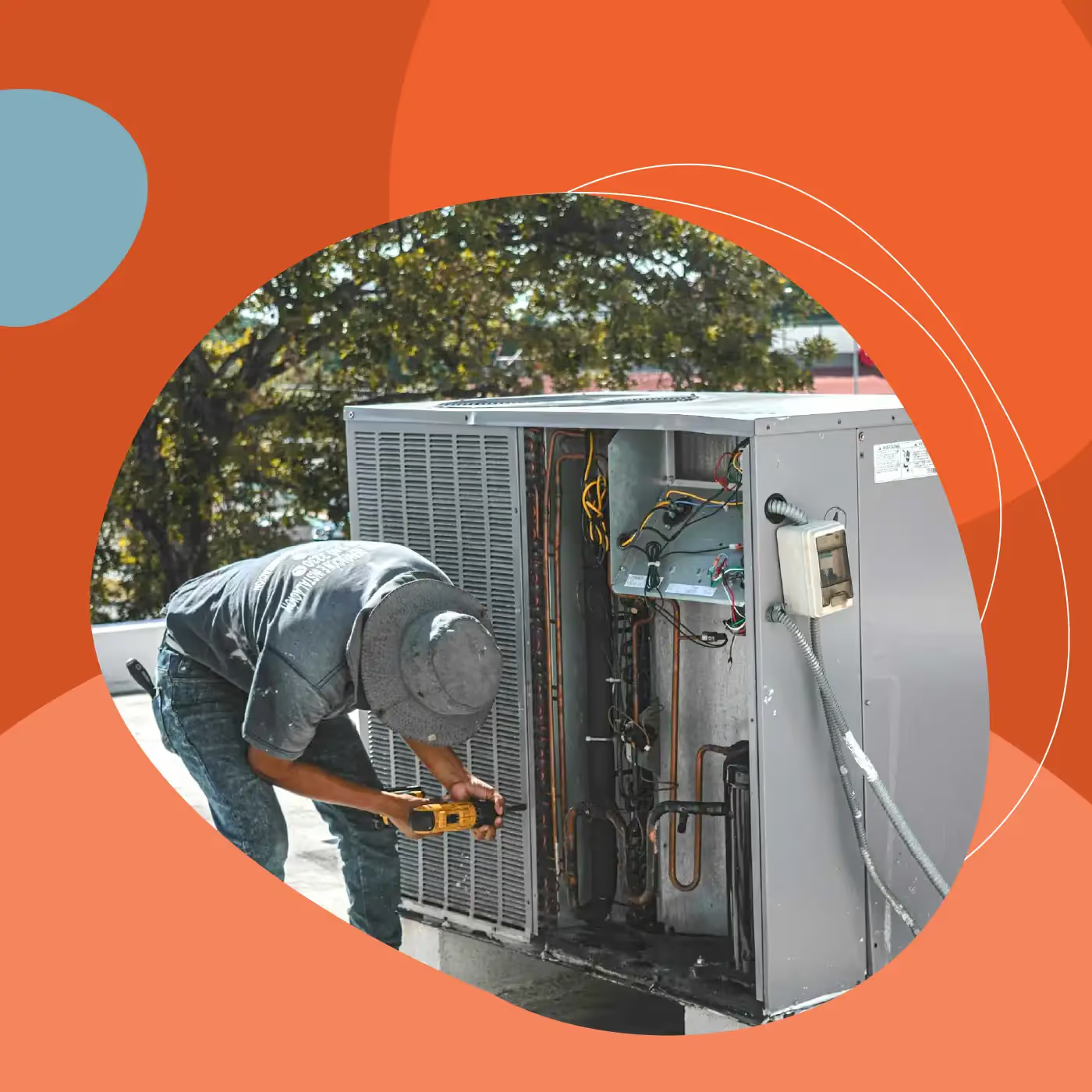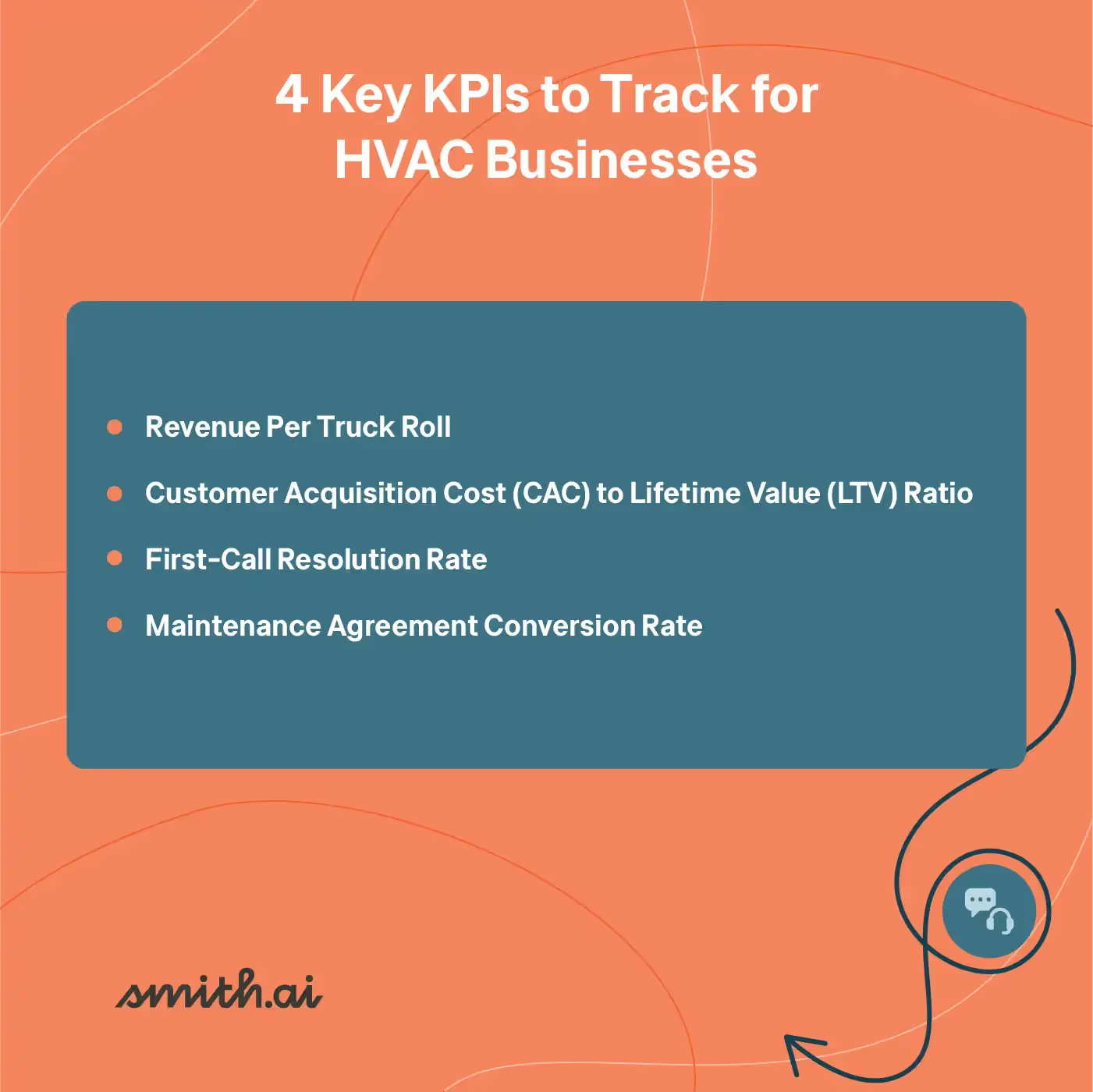How to Grow an HVAC Business Without Working More Hours
How to Grow an HVAC Business Without Working More Hours

We’ve all seen that HVAC business owner who slept with three phones by his bed. One for family emergencies, one for his main business line, and a third dedicated to his biggest commercial clients who might need middle-of-the-night service. He hadn't taken a real vacation in seven years.
"This is just how it is in HVAC," he says, dark circles under his eyes as permanent as tattoos. "You want growth? Say goodbye to your life."
He was dead wrong.
The Big Lie About Growing Your HVAC Business
We've all heard it: growing your HVAC business means grinding harder, working longer hours, and essentially chaining yourself to your service van. If your phone isn't ringing at 2 AM during a summer heatwave, you're obviously not hustling enough.
But what if everything you know about growing an HVAC business is completely backward?
While your competitors are burning out chasing every emergency call and personally handling every customer complaint, the smartest HVAC operators are building businesses that scale without demanding a single extra minute of their time.
Sounds impossible? It's not. It just requires thinking differently about what "growth" actually means.
Stop Growing Harder, Start Growing Smarter
Most HVAC business owners try to grow by doing more of the same — more service calls, more emergency repairs, more installations. Their growth strategy boils down to "add more techs, add more trucks, add more headaches."
But real growth isn't about doing more of the same. It's about creating systems that multiply what you're already doing.
Here's what happens when you build these systems: One day, you'll get a notification about a substantial new commercial contract your team just landed... while you're fishing with your kids on a random Tuesday afternoon. And you'll realize your business is growing even when you're not working.
That's the difference between growing harder and growing smarter.
Four Systems That Create Growth Without Stealing Your Life
1. Pricing and Packaging That Doesn't Leave Cash on the Table
85% of contractors go out of business within the first 5 years. The main culprit? Business owners underpricing their services.
Think about that. If your team runs just five service calls per day, that's potentially thousands daily or hundreds of thousands annually that's not making it to your bank account.
The fix isn't just blindly raising prices (though honestly, you probably could). It's smarter packaging of your services. Developing a sales playbook can help in defining these strategies.
This isn't trickery — it's giving customers clear choices and helping them understand the value they're receiving. And their customers were happier because expectations were clearer.
By considering how to expand your business offerings, you can increase revenue without additional effort.
Want an easy way to test this? Create three service tiers today, make your middle option the one you want most people to buy, and watch what happens to your average ticket value.
2. Systems That Let You Multiply Yourself
Ever notice how McDonald's hamburgers taste exactly the same whether you're in Miami or Seattle? That's not magic — it's systems.
Your business needs to run like a well-oiled machine even when you're not there to oil it yourself. This means creating Standard Operating Procedures (SOPs) so clear that even your newest tech can deliver service that matches your standards. If you're unsure where to start, here's how to write a business SOP effectively.
A great SOP isn't a boring technical manual. It's a playbook that answers: "What would Mike (that's you) do in this situation?" With clear SOPs, you can even consider outsourcing certain tasks, follow this guide to outsourcing, to further multiply your efforts.
Your challenge: Pick one common service your team performs. Document it with photos and simple instructions. Test it with your newest employee. Refine until they can perform it perfectly without asking questions. Then move to the next service.
3. Technology That Creates More Hours in Your Day
Remember our friend with the three phones by his bed? He was essentially using his limited human attention as a bottleneck for his entire business.
Smart HVAC businesses are using technology to eliminate these bottlenecks. And no, I'm not talking about fancy software that requires an engineering degree to operate.
For instance, an AI Receptionist can now provide 24/7 call answering, schedule appointments, and even qualify leads based on criteria you set. When a homeowner calls at 11 PM about a failing AC system, the AI knows which questions to ask, how urgent the situation is, and whether to schedule a next-day appointment or escalate to your emergency team.
When implementing an answering service, considering essential answering service criteria will help you choose the right solution.
Alternatively, if you prefer a human touch, knowing how to hire the best receptionist can also streamline your operations. Using an HVAC answering service can significantly reduce your workload.
Understanding the answering service cost and call center contract terms can help you make an informed decision when choosing a service provider.
4. The Multiplication Method: Marketing That Works While You Sleep
"I get all my business through word of mouth," is what dying HVAC businesses say right before they die.
Word of mouth is great, but it's not scalable or predictable. And it certainly won't grow your business without demanding more of your time.
Effective marketing for HVAC isn't about clever slogans or flashy billboards. It's about creating systems that consistently acquire new clients without requiring your personal attention.
For example, you can set up a simple system where after each service call, customers automatically receive a text message with a link to leave a Google review. If they left a review (good or bad), they got a $10 Amazon gift card.
It’s a solid way of increasing your leads via higher visibility on Google without spending an extra dime on advertising.
You can also try creating short, helpful videos showing homeowners how to do basic maintenance like changing filters or clearing debris from outdoor units. You’re not giving away the farm. It’s just establishing expertise and staying top-of-mind for when bigger problems arise.
Similarly, providing an essential FAQ for HVAC on your website can address common customer questions and establish your business as a trusted resource.
The Counterintuitive Truth About Growth
Growing your HVAC business without working more hours comes down to one fundamental mindset shift: Stop thinking like a technician and start thinking like a systems builder.
A technician fixes AC units. A systems builder creates a business that fixes AC units without needing their personal involvement in every job.
This shift isn't easy. It requires letting go of the belief that only you can do things "the right way." It means investing time upfront to create processes that save time later. And it means trusting others (including technology) to handle tasks you've always done yourself.
But the payoff is enormous. Instead of your business consuming your life, it begins creating freedom in your life. And isn't that why you started your own business in the first place?
The Four KPIs That Actually Matter for Growth

If you're serious about growing without working more, focus on these four key performance indicators:
1. Revenue Per Truck Roll
This measures how much money you make each time you send a truck to a customer's location. Low numbers here mean you're busy but not profitable.
For example, if your average ticket is $275 for a service call but it costs you about $225 in time, fuel, and overhead to complete that call, you're working extremely hard for very little profit. By focusing on increasing this number through better service packaging or add-on sales, you could double your profitability without adding a single new customer.
2. Customer Acquisition Cost (CAC) to Lifetime Value (LTV) Ratio
This tells you whether you're spending too much to acquire customers relative to what they're worth. For HVAC, you want customers who stay with you for years, not one-and-done service calls.
If it costs you $300 in marketing to acquire a new customer, but their lifetime value is only $500, you're not building a sustainable business. But if that same $300 brings in a customer worth $2,700 over their lifetime, now you're cooking with gas (or high-efficiency electric, if that's your thing).
Understanding how to calculate customer lifetime value is essential for optimizing your marketing spend.
3. First-Call Resolution Rate
This measures how often your techs solve the problem on the first visit. Every return trip is pure profit loss.
For instance, if a tech needs to return because they didn't have the right part, that's not just the cost of the second trip — it's also the opportunity cost of a service call they could have been performing for another paying customer.
4. Maintenance Agreement Conversion Rate
This tracks how effectively your team converts one-time emergency calls into recurring maintenance agreements.
The math here is simple but powerful. A one-time AC repair might net you $350. But a customer on a maintenance agreement might be worth $2,100 over three years, plus they're more likely to choose you for major replacements when the time comes.
Building Systems That Scale: The 30-Day Roadmap
Growth without burnout doesn't happen by accident. Here's a 30-day plan to start building systems that scale:
Days 1-7: Document Your Current Reality
- Track every minute of your day for one week
- Identify tasks only you can do versus tasks anyone could do with proper training
- List the top three bottlenecks in your business
Days 8-14: Create Your First Critical SOP
- Pick the service your team performs most frequently
- Document the perfect process step-by-step with photos
- Test with your newest team member until they can perform it flawlessly
Days 15-21: Implement One Technology Solution
- Set up an AI receptionist to handle after-hours calls
- Create an automatic follow-up sequence for customers after service
- Implement digital payment options for faster payment processing
Days 22-30: Build Your Marketing Machine
- Set up an automated review request system
- Create a simple referral program that rewards existing customers
- Plan your first educational content piece that demonstrates your expertise
Take the First Step Today
Growing your HVAC business without working more hours is entirely possible — thousands of smart HVAC owners are doing it right now. They're not smarter or more talented than you. They've just discovered that systems, not sweat, are the secret to sustainable growth.
One practical way to start is by ensuring you never miss another potential customer call. The AI Receptionist from Smith.ai can help you capture every lead and qualify prospects, even during your busiest times or after hours.
The best part? You don't have to hire additional staff or manage yet another employee. Their receptionist team integrates with your existing systems to handle call answering, lead qualification, and appointment scheduling. freeing you to focus on the work that actually grows your business.
Whatever path you choose, remember: Your HVAC business should give you more life, not take it away. And with the right systems, it can.
Book a free consultation with Smith.ai to learn more.
Take the faster path to growth. Get Smith.ai today.
Key Areas to Explore

Your submission has been received!














.svg)



